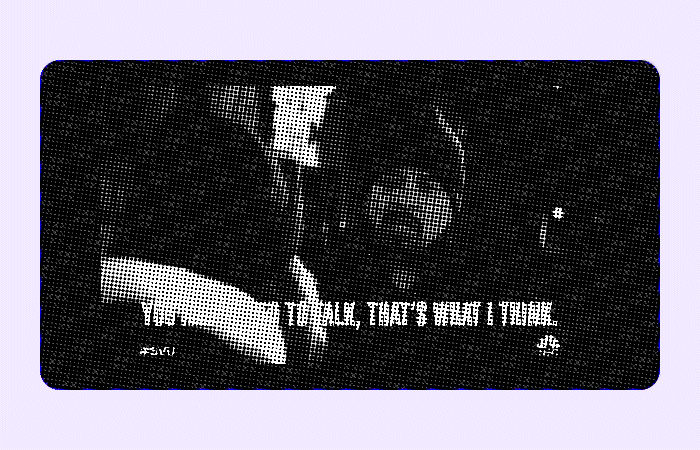I’ve always been inspired by women who are outgoing, very sure of themselves, and not afraid to be who they were, including their sex lives. Under their tutelage, I gradually shed my old self, hung out and socialized with them, and, over time, became the empowered, self-confident, and sexual woman I am today. Happy to share my insights with other women today!
Dealing With Double Standards in Relationships
Relationships can turn into power games with double standards involved. In this regard, looking at how it works in politics is interesting.
If you follow it at all, you have probably noticed the double standards that are pretty blatant. During an interview, a politician can hold his opponents to a certain standard of behavior and then not follow that standard themselves. A recent example has to do with the high cost of insulin. Many politicians spoke against these high prices and urged the “other side” to take action, but then voted against a law that would force that price down. This is a double standard that is close to hypocrisy.
“Do as I say, not as I do” is a good way to describe a double standard. And it happens in all facets of someone’s life – bosses, friends, relatives, and even our financial advisor who fails to personally follow the advice they give to us. And unfortunately, double standards often rear their ugly heads in our personal and intimate relationships with our partners. Here we will describe what double standards are in relationships.
Defining Double Standards in Relationships Between Partners
In intimate relationships, double standards happen when one partner has expectations for certain behaviors for their other partner but does not hold themselves to those same expectations. These can range from lighter chores around the house to more serious behaviors, such as spending money or sex. When this happens, the partner who is on the receiving end of these expectations can develop feelings of resentment, because standards are unfairly applied, or trust issues.
“If you put up with it, you’re going to end up with it. Set the standard you want, and don’t settle for less.”
Steve Maraboli, behavioral scientist
After all, if you cannot trust a partner to do as he insists you do, what else might they not be holding themselves to? While some of the double standards may be relatively minor, others can be deal breakers. And those that are relatively minor can continue to eat at the “victim” and build up to major issues over time – harmful to any partnership or marriage.

What Type of Partner Engages in a Double Standard Relationship?
This is a complex answer. Some adults have grown up having every need or desire immediately met by their parents, and they expect that they can now set the “rules” for a relationship, whether they intend to follow them or not. Their partner should meet their needs, just as their parents did.
There are also partners with narcissistic traits who are focused on control, and at times they require professional help. Their ability to sustain romantic relationships involves a partner bending to their will and giving them almost undivided attention and loyalty. Another caveat here is that narcissists will not accept responsibility for any mistakes or wrongdoing. It will always be someone else’s fault. So, if they set standards that they do not follow themselves, they can always justify that behavior.
Others actually put their partners on a pedestal and thus expect only the very best from them, even though they do not expect the same from themselves. These can be tough cases, because their intention is not to control, and yet it comes off that way. For example, they just expect you to be financially responsible when they know they are not and won’t probably change their behavior. But still, when that partner’s behavior conflicts with what they expect of you, resentment can set in.
Just remember, no matter what the cause of a double standard is, the result will not be a fully healthy relationship.
What Are the Most Common Double Standards in Relationships?
Sometimes there are double standards in your situation, but you have just chosen to ignore them. In this case, it’s hard to identify them right away. Check out this list and apply in to the reality of your current situation. If you are experiencing any of them, do they bother you? And if so, what are you supposed to do? Read on.
Your Partner May Flirt, But You May Not
This is a common complaint of women, but men can also be the “victims” of this double standard. And in this digital age, much of that flirting may actually occur online. The offending partner excuses it by stating that it “means nothing” because they have no intent to ever meet up with these people in person. And yet, this partner becomes angry if you are doing the same thing. This is unequal and it must be addressed. If it continues after your object, it shows a lack of respect.
Related reading: Coloring the Grey Zone – Is Flirting Cheating?
Your Partner Feels Free to Spend But Tries to Control Yours
Sometimes, a partner may justify this if they are the only one working or they earn more than the other partner. The truth is this: in an equal partnership, the amount of income for each partner should not determine how much money they get to spend. Sometimes, this can bleed over into your partner feeling justified in making all the decisions of importance.
Your Significant Other (SO) Has Needs Met But Does Not Reciprocate
You are a “giver”. You want to help others. If a friend calls with an emergency, you’re right there. If a family member needs a ride or a babysitter, you step up. And you enjoy meeting the needs of your SO, too.
So, you listen, hop up when they ask you to get something for them, fix their favorite meal often, do special things for their birthdays, etc. In short, you make sure they are comfortable and content.
“Women are generally more comfortable giving and receiving emotional support, and it’s easier for them to relate to other people’s problems. ”
Rob Pascale, PhD, research psychologist and Lou Primavera, PhD
But you recognize that your needs are not being met at the same level. You’re sort of running yourself ragged taking care of their needs and your own, maybe even neglecting some of yours. Clearly, your SO does hold double standards in this aspect of your life. And it’s a sensitive issue that you may not know how to address.
They Have the Right to Go Out with Friends, But You Don’t
Wow. Here’s a tough one. They are spending time socializing with friends, hitting a few clubs, coming home late, and, in the case of a marriage with children, leaving you home with the kids.
But you are not supposed to do this. Somehow, this is disloyal or not considerate. This kind of control is unhealthy. Partners need time away to enjoy the company of others. And in terms of “nights out with the guys or gals,” equality should reign.
Related reading: Gaslighting Phrases Everyone Should Know About
Your Friends and Family vs. Theirs
Your SO wants to gather with their friends and relatives as opposed to yours. And they love hosting them. But your friends and relatives? Not so much.
In fact, they are almost “rude” about it – maybe withdrawing or just not participating in normal conversation and pleasantries. And your people recognize their poor behavior, even to the point of not wanting to come to your place anymore. It’s embarrassing at the very least. This type of double standard puts you in the middle, making excuses.

Unequal Division of Household Chores
Quick story: Years ago, a married couple both worked, but societal norms still held that the woman did the domestic chores of dinner, dishes, and getting the kids to bed. This wife was a bit ahead of her time and tried to cajole her husband to assume some of these tasks. He had a hobby – always a classic car in the garage that he was restoring. This was his after-dinner activity, and he was not about to give it up.
One night, after the kids had been put to bed, she came downstairs and went to the garage. Picking up a hammer, she said, “We either have a talk right now, or this hammer will be coming down on your precious car.” Needless to say, they had “the talk.” Obviously, this is an extreme reaction on her part, but she had tried the other way of asking, to no avail. Ultimately, they did divide up all the chores more evenly.
The point is: each person in a true partnership must recognize that task responsibilities must be divided as equally as possible. If this isn’t happening, things are badly one-sided.
Unequal Approaches to Responding
Your partner expects you to answer calls and texts as soon as you get them. Why? Because they are the most important person in your life. And yet they feel no need to do the same – not a good deal and not the way they should treat you.
Placing Blame During Disagreements
Couples are going to argue. No two people can share the same space without disagreements. How these are handled can be a red flag.
Don’t allow to be one-sided. For example, when one person in your “couplehood” insists that their position is always right and you are always wrong. Or that same person puts blame on you for the troubles or issues you face.
Having Friends of the Opposite Sex
This can be a pretty raw double standard. One partner thinks that it’s just fine to have friends of the opposite sex, but the other’s friends must all be of the same sex. This double standard is often the result of insecurity and/or unreasonable jealousy. But it is a double standard – you do have the right to equal time with those friendships.
Related reading: What is NSA in Dating? Let Freedom Ring!
Talking Out of School
Some insecure narcissists have a need to put down their SO by telling unflattering stories about them or revealing private information that is certainly not for public consumption. Your feelings are hurt quickly when this happens, are often embarrassed, and carry resentment. If you ever do the same, God help you. It is never okay to “talk out of school” this way, and you should cope with with this head-on.

Useful Strategies to Avoid Double Standards in Relationships
Check Your Own Self-Esteem
Sometimes we lose ourselves in a relationship. We want it to work and are so in love that we willingly put up with wrong behaviors of our partners. Who were you before this relationship? And do you put up with these same behaviors from friends and relatives? While it may be hard to do, you must assert yourself and be the person you used to be. If your partner does treat you badly, call them out on it in a firm and assertive way. No yelling or screaming. Calm rules the day.
Be Assertive, Not Aggressive
Communication takes many forms. But when there are issues to be addressed in a relationship, aggressive behavior never wins. Aggressive communication involves a loud and unpleasant voice tone, fosters in-kind responses from a partner, and usually ends without any resolution.
Practice What to Say
This is probably the best method of staying calm during the confrontation. Identify the double standard so you can describe it accurately. Explain what you believe to be that double standard and calmly state that you are tired of it. Don’t make it sound like a demand. Instead, make it sound like it is a problem that must be resolved. At the same time, state what you expect to change.
Accept That the Relationship May Not Survive
This is a really hard thing to do. You have to weigh your need to be an equal partner against your desire to have this relationship, even though it causes you to hurt. Just be aware that over time, double standards in a relationship do result in resentment, pent-up anger, and you compromising who you really are for someone else. This is never healthy.
Schedule the Confrontation for a Good Time
Proper scheduling is critical. When your partner arrives home after a stressful day at work, it is time to be empathetic, not confrontational. Be an active listener, just as you would want them to be during these times. Pick a time when both of your moods are on an even keel.

Look for the Red Flags Early in a Relationship
Let’s be clear: having double standards is not gender-specific. Whether you are a male or female, you can see these early on. Talking about them at this time will help you avoid double standards coming into a longer-term relationship. And if you find that your partner is unwilling to accept them and make changes, better to take a break or move on now rather than go through more pain later on. If one partner acknowledges their double standards and indicates they want to change, there is a good chance that the relationship may work out – one that is based on mutual respect of both partners for one another.
Related reading: 21 Things Your Partner Should Never Say to You (and Vice Versa)
Be Willing and Able to Say No
Here’s the thing about double standards. They can be intentional or unintentional. But if any of those double standards compromise who you are or your needs, you must muster up the courage to say no. Identify what you are saying no to, be honest about your objection, and focus on that single issue, not other things in your relationship. If your partner does not accept your “no,” move on.
By No Means a Comprehensive List
These are the most visible double standards in a relationship that one partner may exhibit. But there may be others, and your partner may not be putting much effort into leveling the playing field.
Relationships are complicated, to be sure, and each partner has a role to play in them. If both parties come to a relationship with a sense of equality and fair play, then the relationship probably has a solid future.








